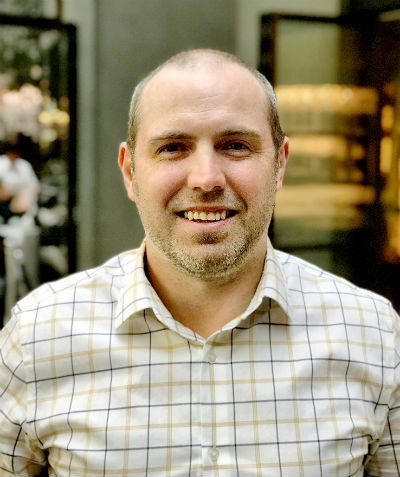|
|
|
|

|
Partnership to trial medicinal cannabis with Trillium Villa residents ‘an exciting opportunity,’ says doctor
Dr. Blake Pearson says sleep disorders, agitation caused by dementia, chronic pain and neuropathic pain are among conditions that treatment may help
2/2/2018
-
Deron Hamel
|
|
Dr. Blake Pearson
|
|
Dr. Blake Pearson says prescribing medicinal cannabis to treat certain ailments affecting Trillium Villa residents is “an exciting opportunity” to reduce polypharmacy – the concurrent use of multiple medications for individuals – at the Sarnia long-term care home.
Dr. Pearson, who recently formed a partnership with Trillium Villa to examine the benefits of medicinal cannabis in residents, says sleep disorders, agitation caused by dementia, chronic pain and neuropathic pain are some of the conditions that could be eased with medicinal marijuana treatment.
Pharmaceuticals can have adverse side effects, especially if people are taking multiple medications, and many long-term-care home residents take multiple medications, Dr. Pearson says.
Many residents, he adds, also have kidney disease, and the non-steroidal anti-inflammatory medications typically used for pain management and inflammation can increase risk of kidney harm. Medicinal cannabis does not pose such risk.
Dr. Pearson began visiting with Trillium Villa residents and their families about two weeks ago to discuss the initiative with them.
Dr. John O’Mahony, Trillium Villa’s attending physician, is identifying residents who may benefit from this therapy. Once selected to try the therapy, and after residents and their family members have given consent, nurse practitioner Oksana Konko will write referrals and Dr. Pearson will then write prescriptions.
Residents who choose to try this therapy and obtain a prescription will mostly receive the medicinal marijuana in an oil-based form which can be mixed with food. Capsules may also be used.
The oil residents will receive will have a higher ratio of cannabidiol (CBD) content to tetrahydrocannabinol (THC) content. CBD is the most abundant, non-psychoactive chemical compound in cannabis. Unlike THC, the most abundant chemical compound in cannabis, CBD will not get people “high.”
Typically, Dr. Pearson says he uses a one-to-three ratio of THC to CBD.
And while medicinal cannabis is not the first line of therapy for conditions such as chronic or neuropathic pain, it’s a treatment that’s showing benefits where other interventions have fallen short of expectations.
“The studies are mounting as well, and now that we’re able to study it, that body of evidence is growing, so much so that the Canadian Pain Society has raised medical cannabis for neuropathic pain to be a third- or fourth-level drug,” Dr. Pearson says.
Dr. Pearson says he’s encouraged by the support he has received from Trillium Villa and the families of residents.
“It’s really exciting that they are taking a progressive approach to these residents who can benefit,” he says.
“We are already starting to see the benefit in my clinic, and we are expecting to see the same kind of beneficial results in the long-term care setting. Residents’ families are asking for an alternative (to pharmaceuticals) and we’re excited to provide that service.”
- More to come
Do you have a story you would like to share with S&R Today? If so, please contact the newsroom at deron(at)axiomnews.com.
If you have feedback on this story, please e-mail deron(at)axiomnews.com.
|
|
|